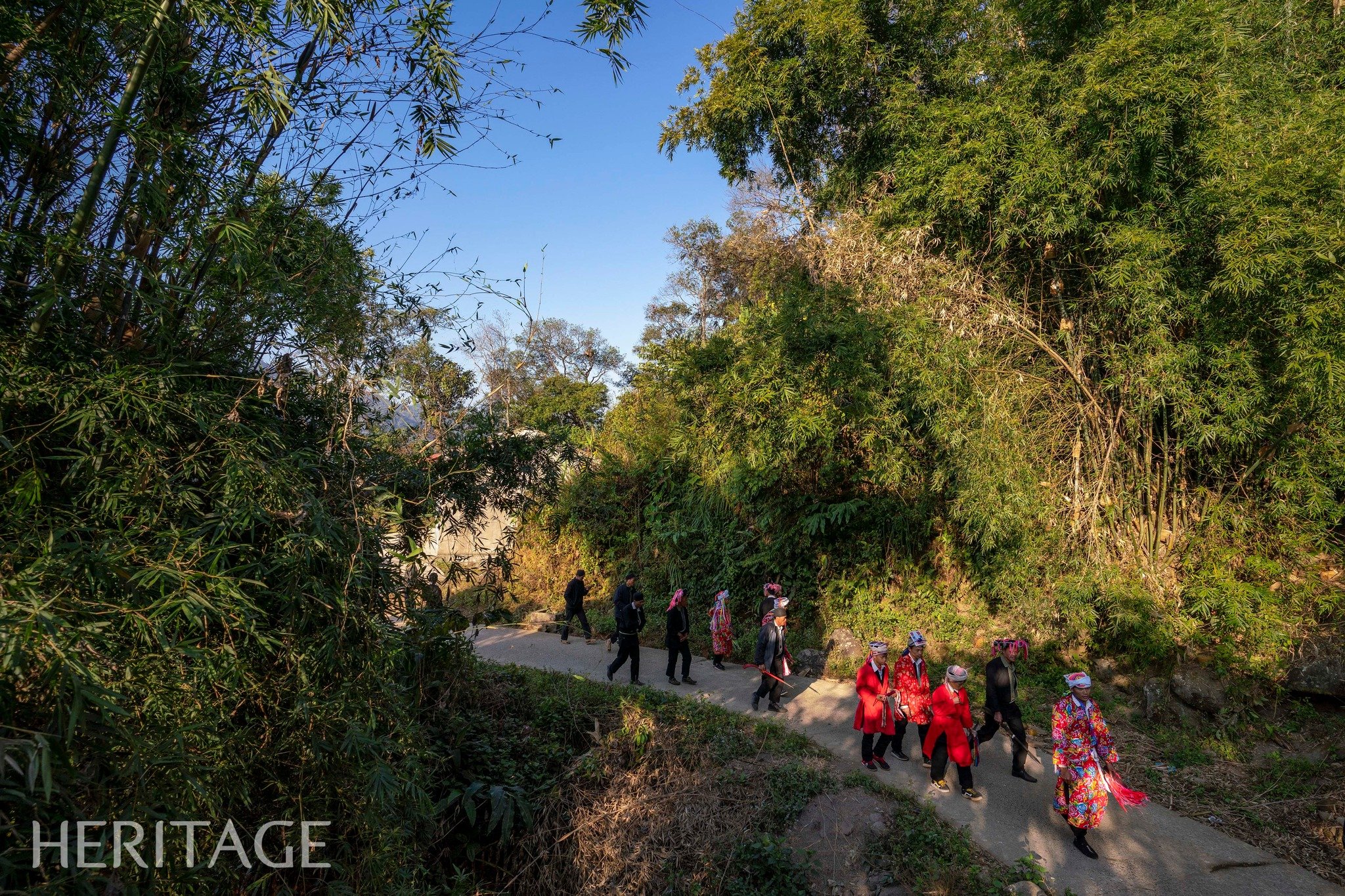
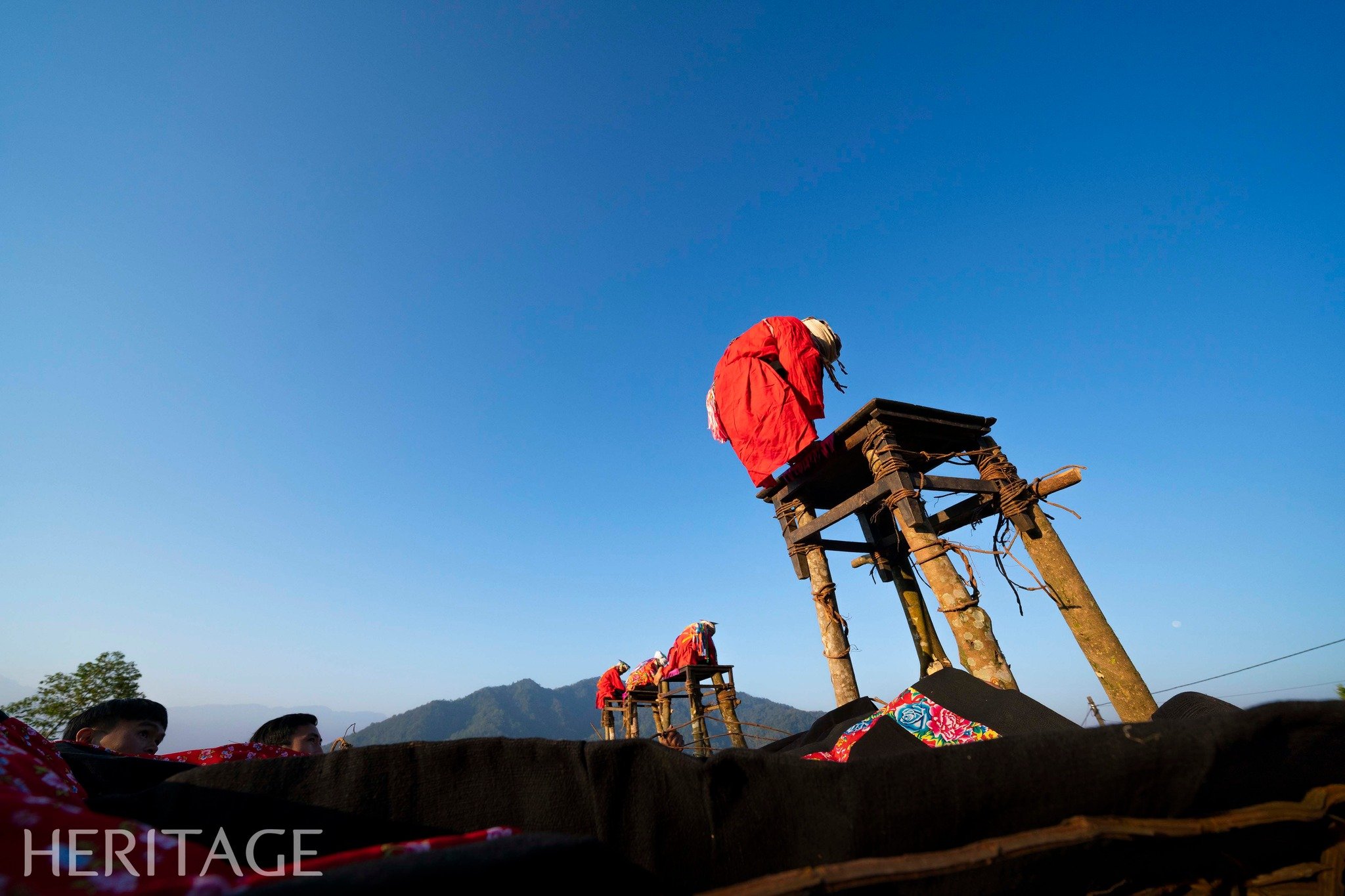 Among them, we must mention the Tu Cai ceremony of the Dao Dau Bang people in Ho Thau commune. According to the meaning of Nom Dao script, "Tu" means to report, "Cai" means to name. Tu Cai is understood as a ceremony to report to the gods and ancestors about giving a negative name to a son in the family line.
Among them, we must mention the Tu Cai ceremony of the Dao Dau Bang people in Ho Thau commune. According to the meaning of Nom Dao script, "Tu" means to report, "Cai" means to name. Tu Cai is understood as a ceremony to report to the gods and ancestors about giving a negative name to a son in the family line. 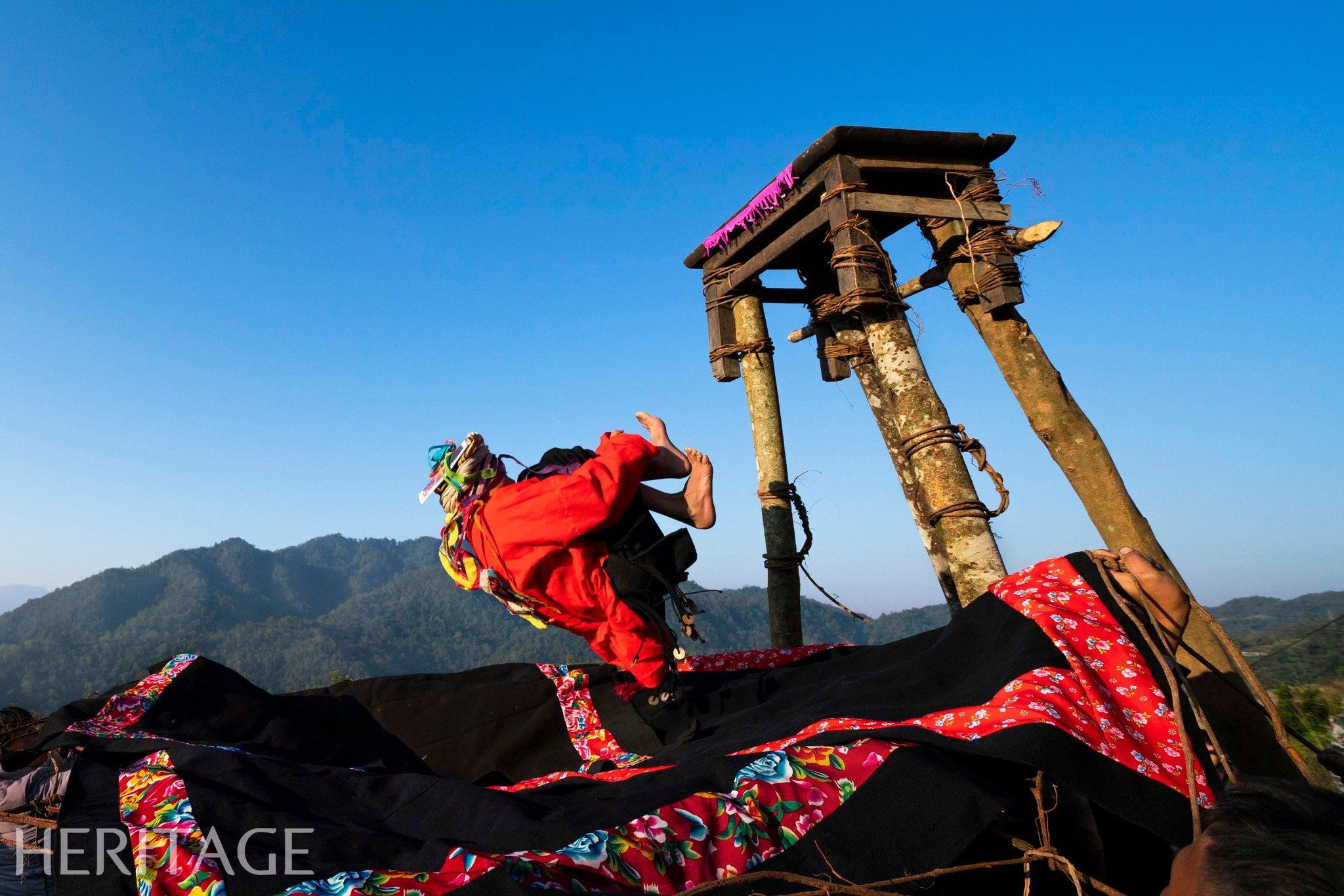
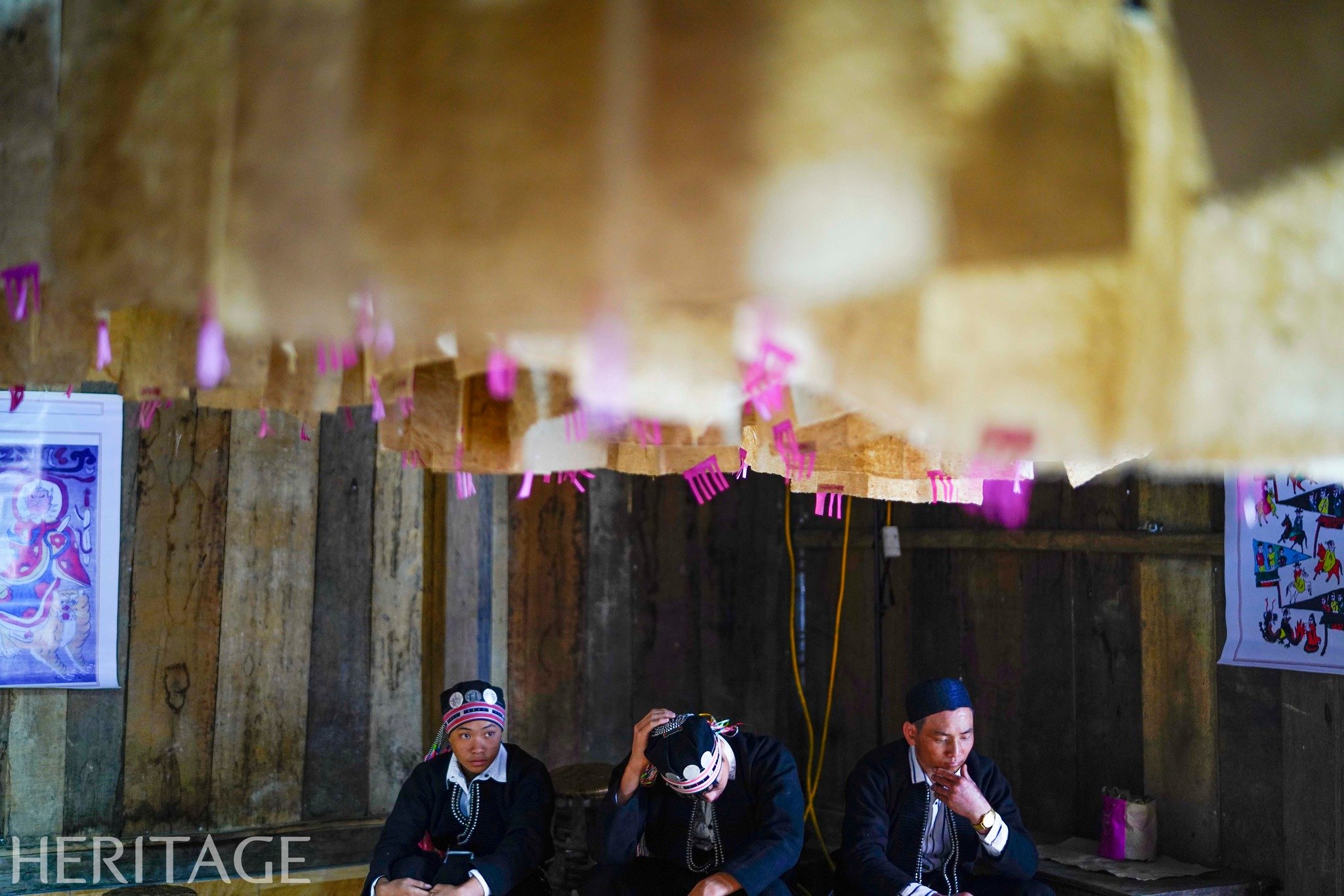 The Dao believe that only when a son goes through this ritual will he be recognized as an adult, virtuous, and know what is right and wrong so that he can take on the responsibilities of his family and community in important matters.
The Dao believe that only when a son goes through this ritual will he be recognized as an adult, virtuous, and know what is right and wrong so that he can take on the responsibilities of his family and community in important matters. 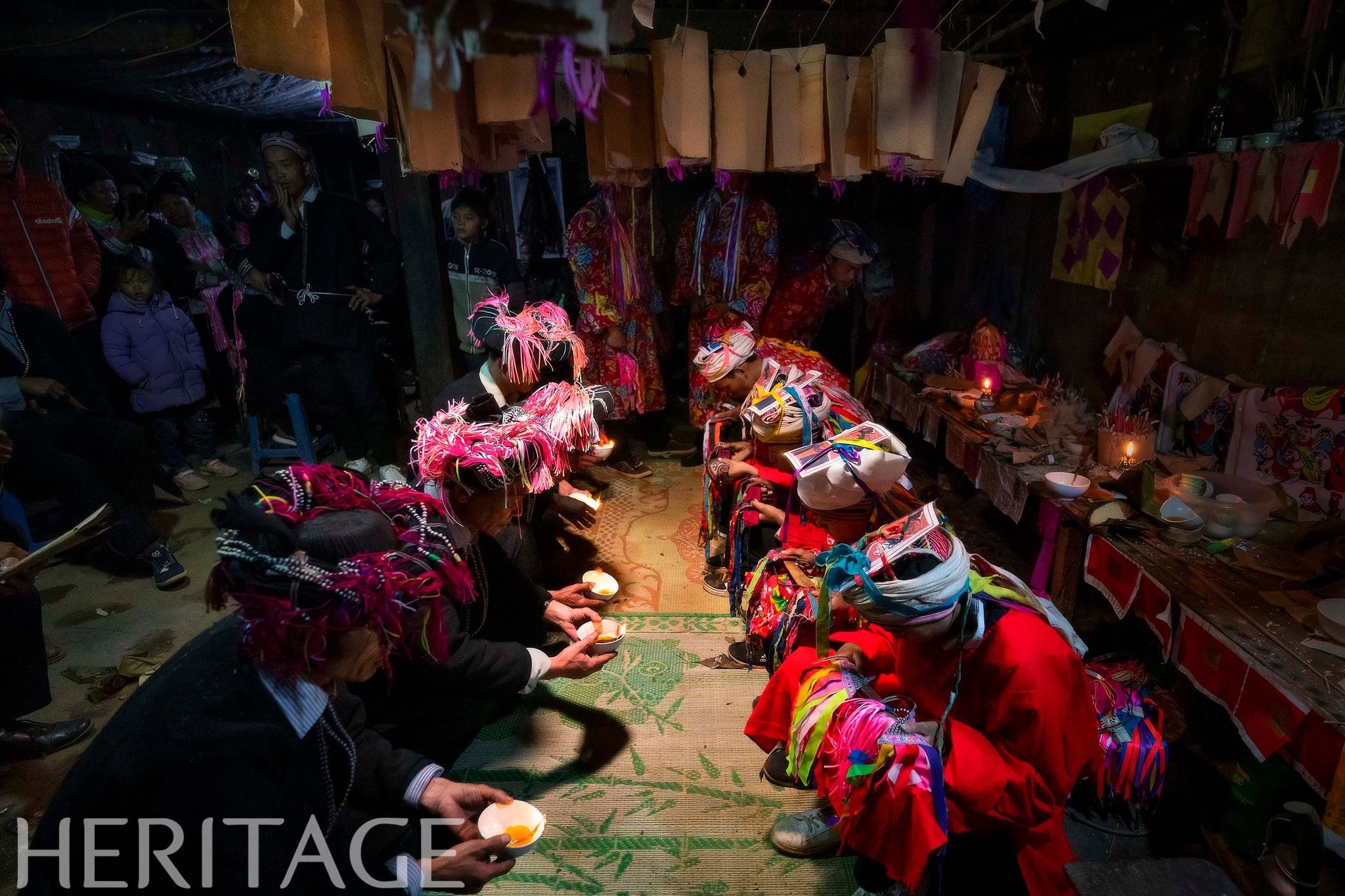
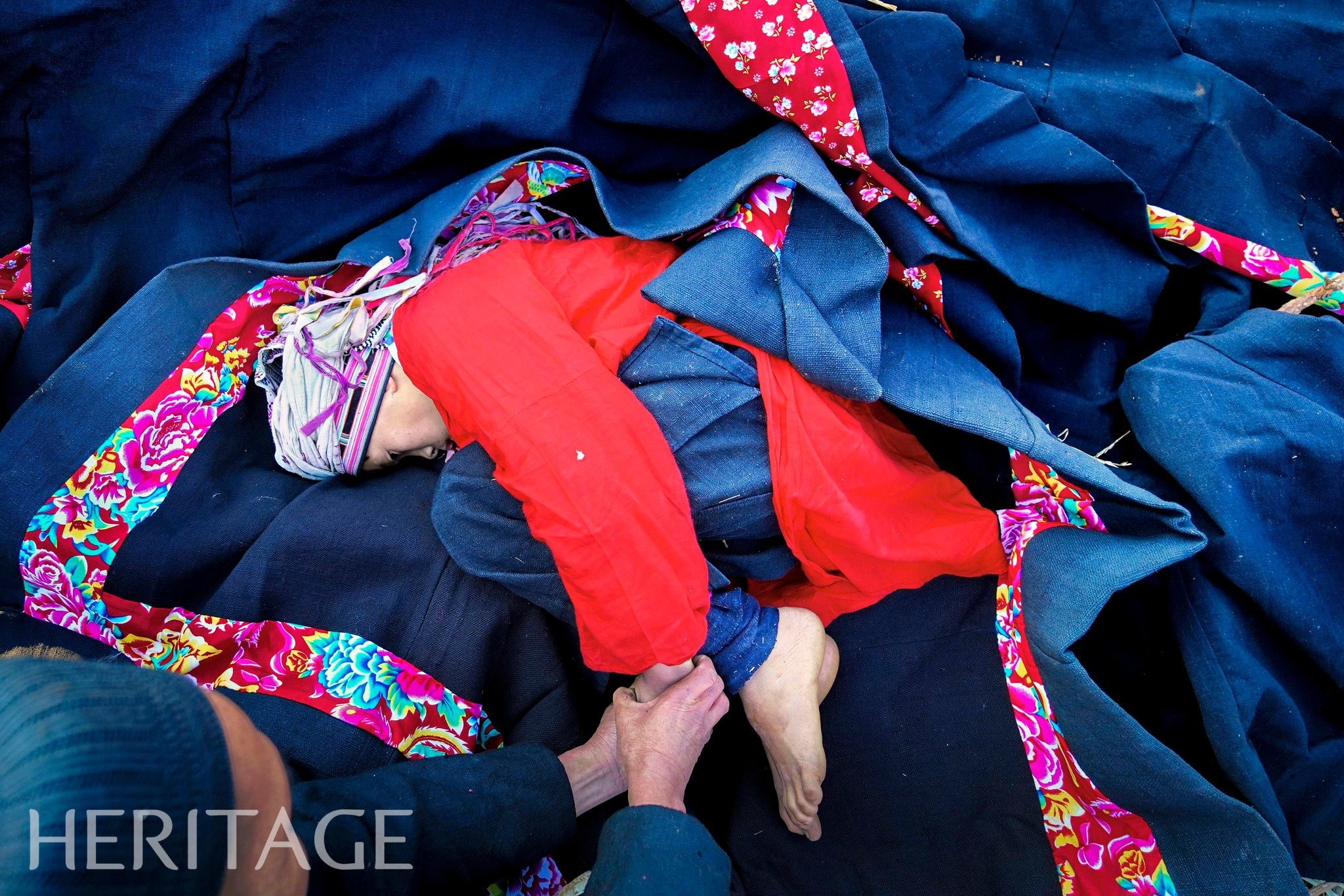
And importantly, from a spiritual perspective, they believe that a man who has undergone the Tu Cai ceremony will be reunited with his ancestors in the afterlife. Once given a negative name, the Dao Dau Bang people only use this name in traditional ceremonies and record it in their family tree for their descendants to worship when they pass away.

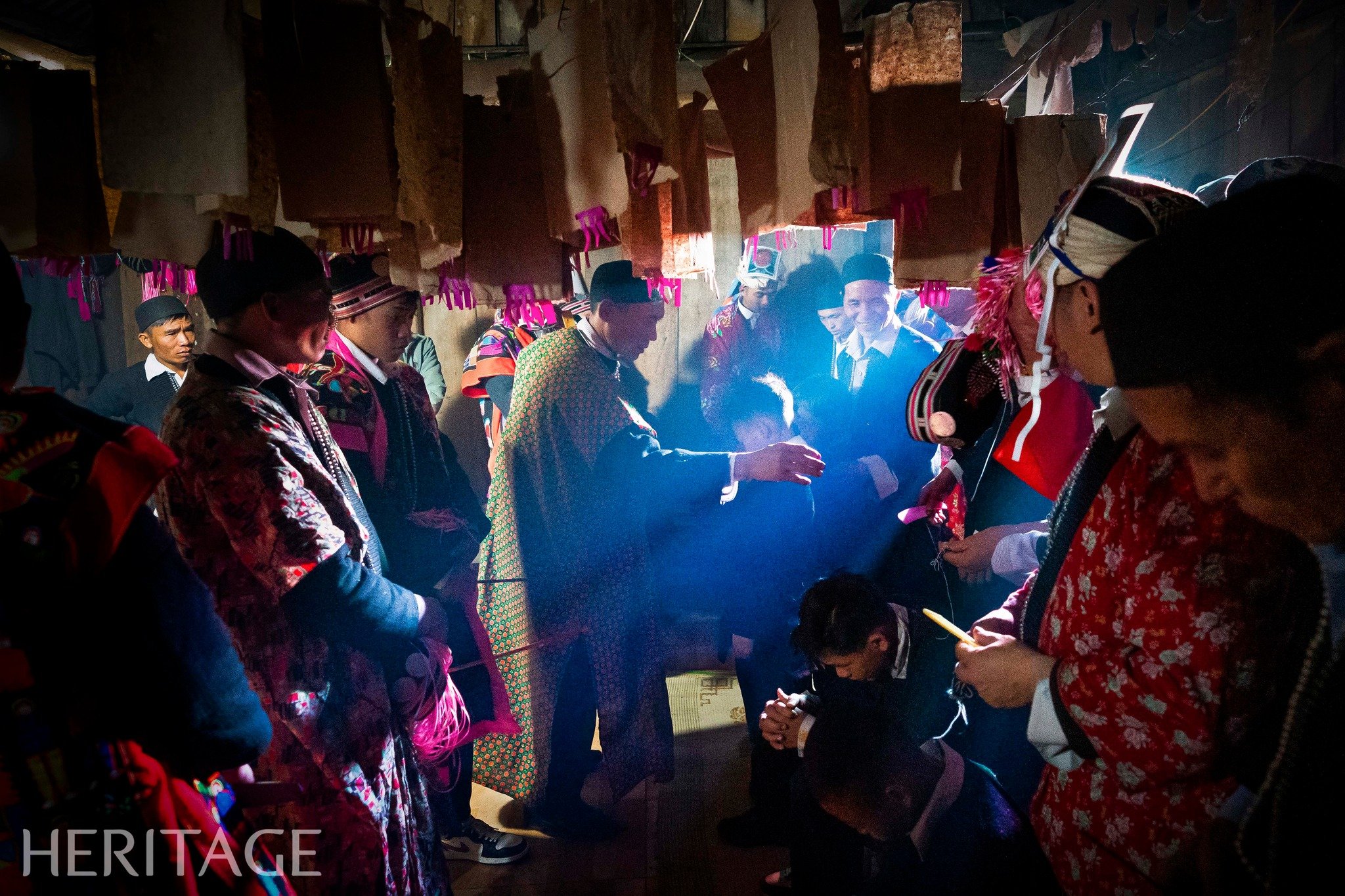 At the end of the year when the farming season is off, the Tu Cai ceremony is usually held for about 3 days, depending on the economic conditions of each family. About a week before the ceremony, the homeowner who has a "recipient" will carefully prepare the offerings to perform the ceremony. During the Tu Cai ceremony, the shamans and the "recipients" are usually young people between the ages of 9 and 17 who perform many prayers with the purpose of letting the gods and ancestors acknowledge and witness the man's bravery. Each prayer associated with each ritual has a different meaning. For example, the ritual of stamping a passport, lighting a lamp with the meaning of cleansing the body before receiving the soul.
At the end of the year when the farming season is off, the Tu Cai ceremony is usually held for about 3 days, depending on the economic conditions of each family. About a week before the ceremony, the homeowner who has a "recipient" will carefully prepare the offerings to perform the ceremony. During the Tu Cai ceremony, the shamans and the "recipients" are usually young people between the ages of 9 and 17 who perform many prayers with the purpose of letting the gods and ancestors acknowledge and witness the man's bravery. Each prayer associated with each ritual has a different meaning. For example, the ritual of stamping a passport, lighting a lamp with the meaning of cleansing the body before receiving the soul. 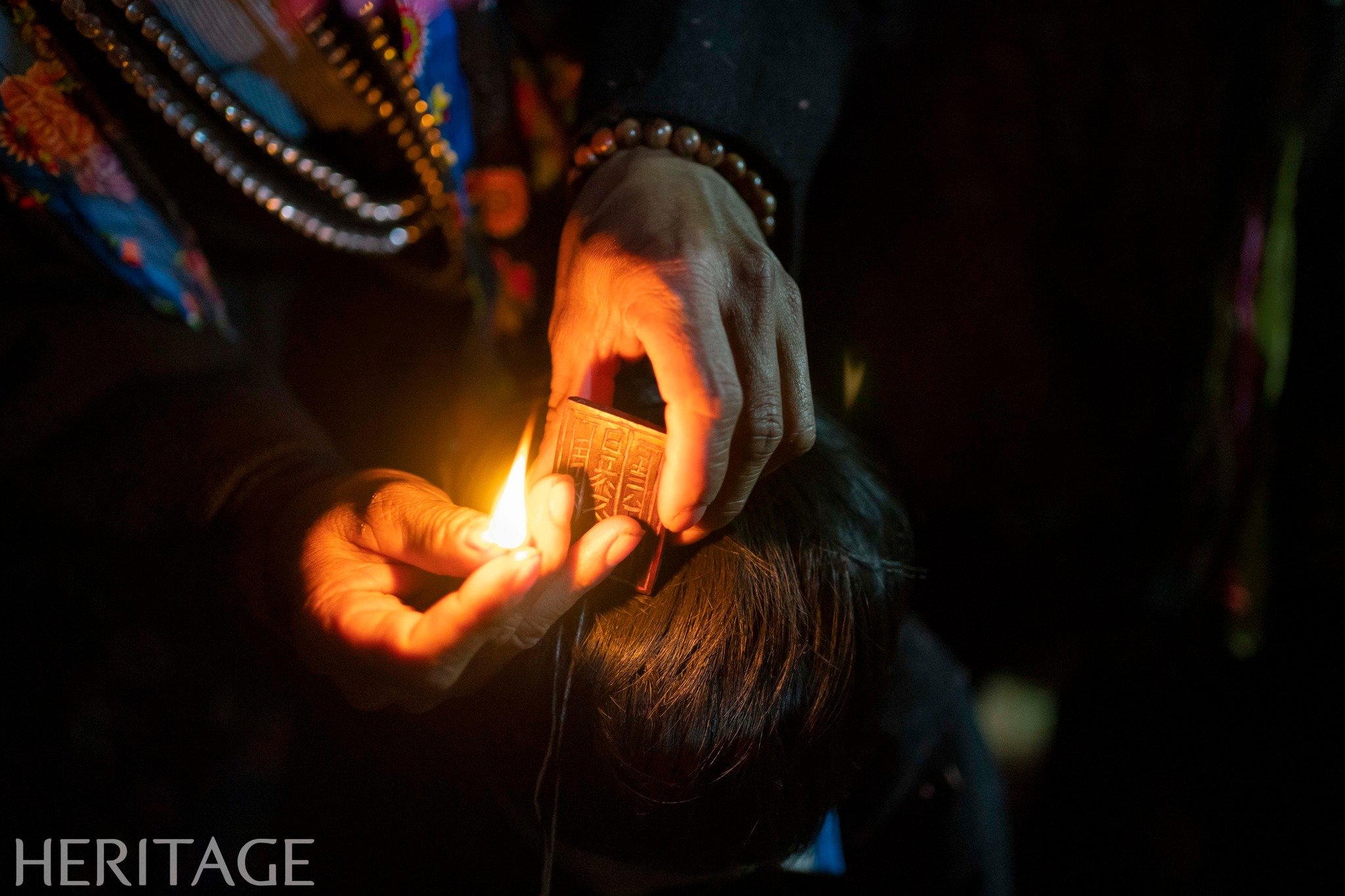
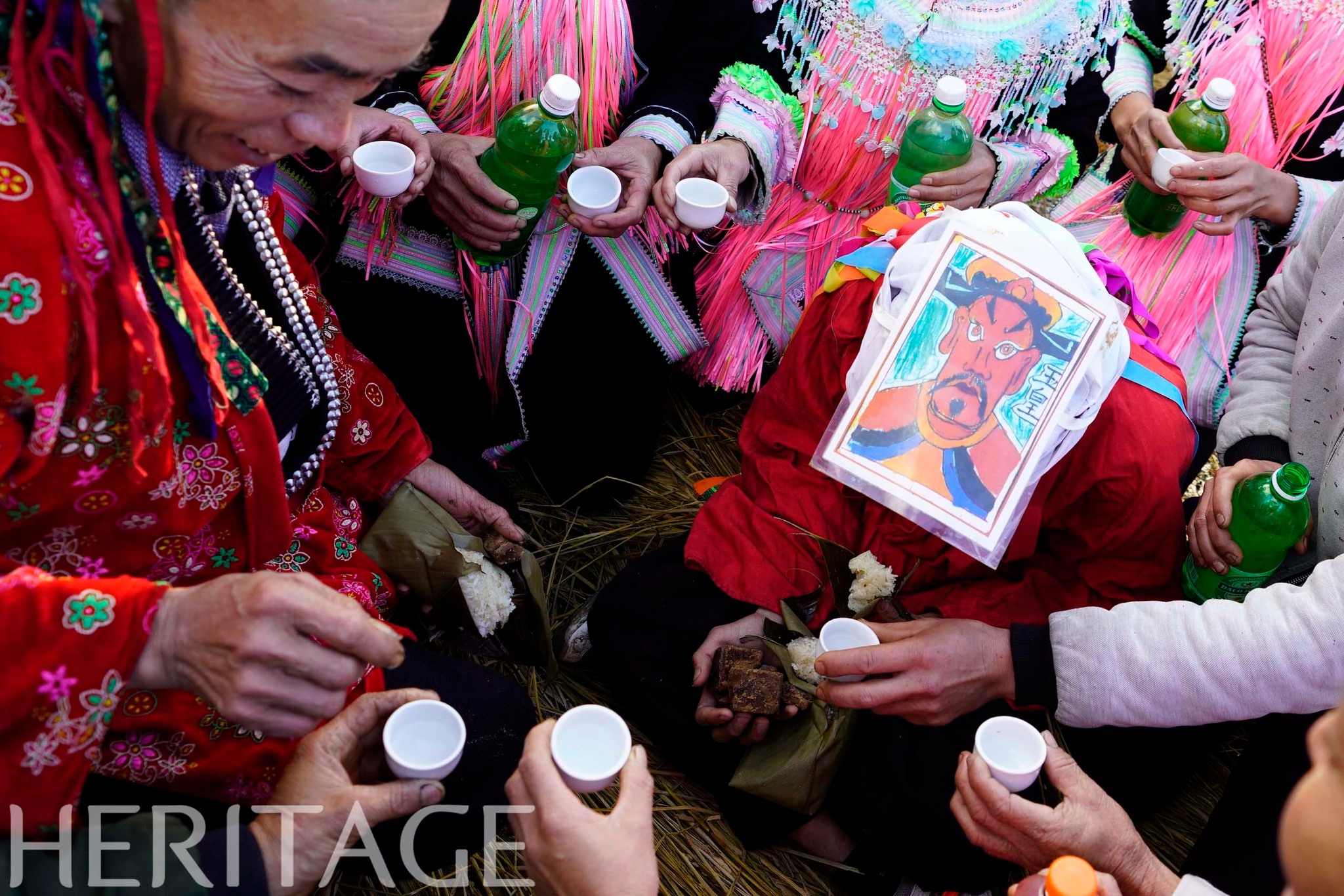 Or the ritual of tying coins to the head and then cutting the string with the meaning of recreating the process of cutting the umbilical cord when the mother gives birth. In addition to spiritual rituals, the shaman also teaches the son to practice worship rituals, traditional dances or play many types of ethnic musical instruments. In particular, the shaman is also the one who teaches good things, right reasons, and morality to demonstrate the role of the man as the pillar in the family and community.
Or the ritual of tying coins to the head and then cutting the string with the meaning of recreating the process of cutting the umbilical cord when the mother gives birth. In addition to spiritual rituals, the shaman also teaches the son to practice worship rituals, traditional dances or play many types of ethnic musical instruments. In particular, the shaman is also the one who teaches good things, right reasons, and morality to demonstrate the role of the man as the pillar in the family and community. 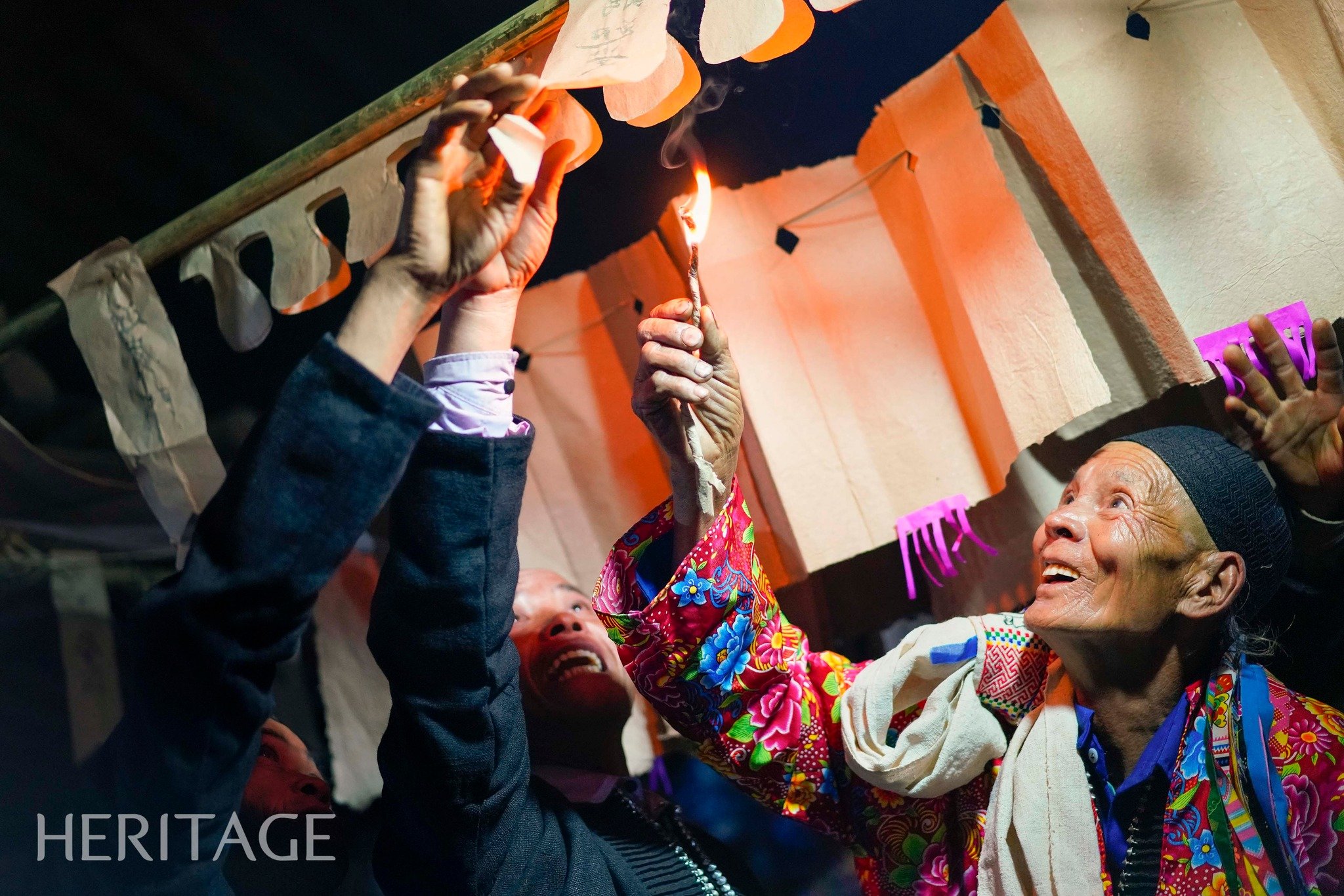
The most important and unique ritual in the Tu Cai ceremony is the “falling stage” ceremony, which is performed outdoors. The most memorable moment for the man is when the shaman and the community witness him kneeling on a high platform and falling backwards, curled up like a fetus in the womb. Below is a hammock stretched out and waiting for him by other strong men. When the fallen person touches the hammock, he will be immediately wrapped up in a blanket. Then, the shaman will be the one to open the blanket, allowing the person performing the ritual to step out. From here, the man has completed all the rituals in the Tu Cai ceremony and is officially recognized by the community as an adult.
Heritage Magazine






![[Photo] "Beauties" participate in the parade rehearsal at Bien Hoa airport](https://vstatic.vietnam.vn/vietnam/resource/IMAGE/2025/4/11/155502af3384431e918de0e2e585d13a)
![[Photo] Looking back at the impressive moments of the Vietnamese rescue team in Myanmar](https://vstatic.vietnam.vn/vietnam/resource/IMAGE/2025/4/11/5623ca902a934e19b604c718265249d0)




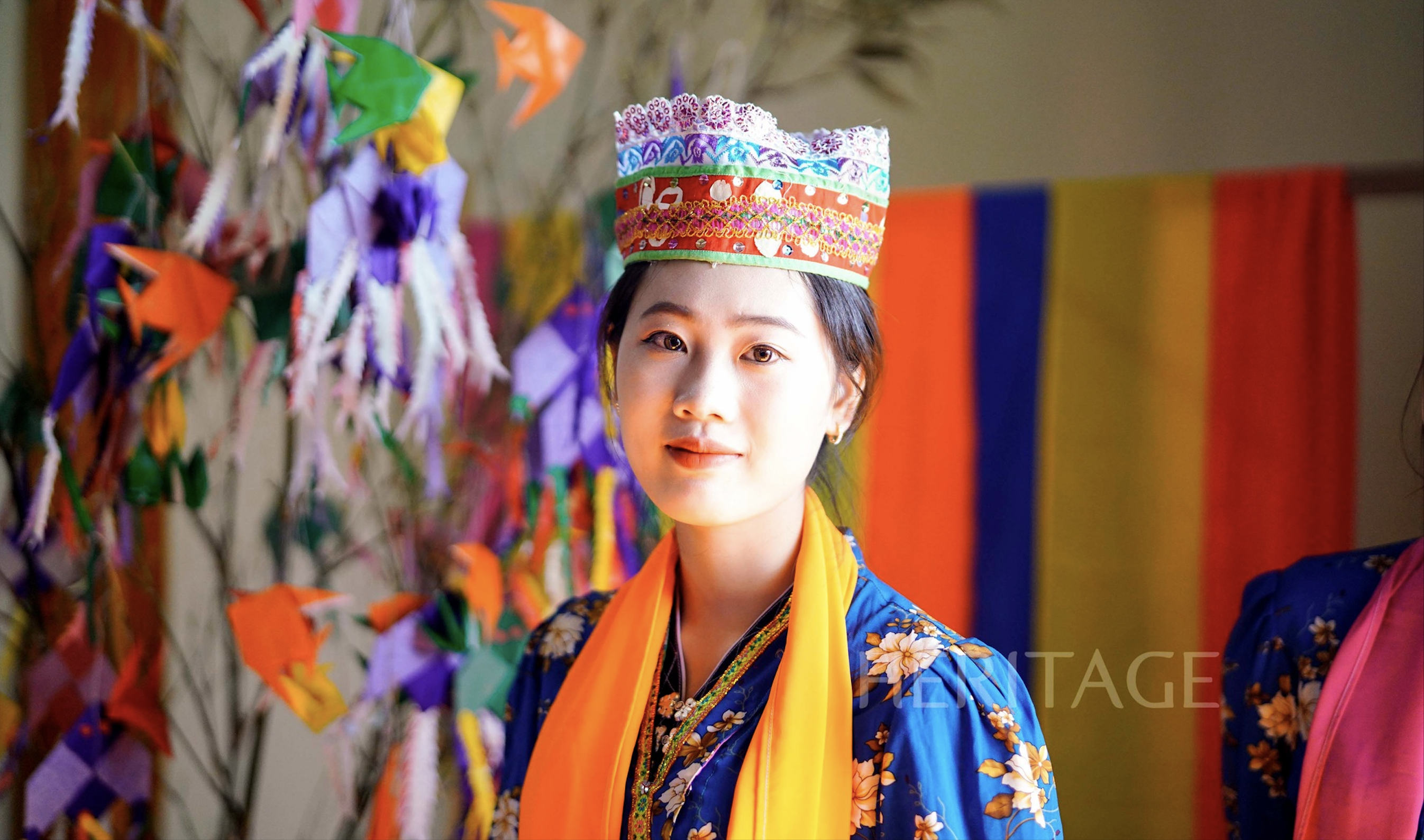



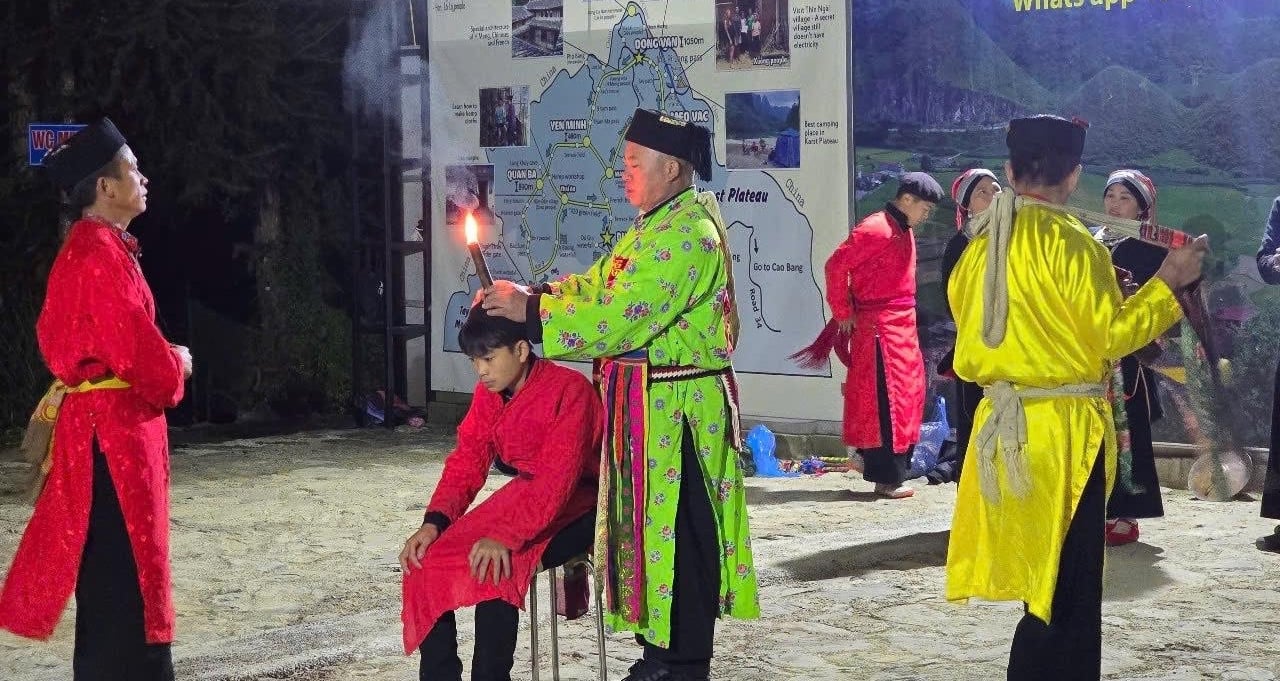

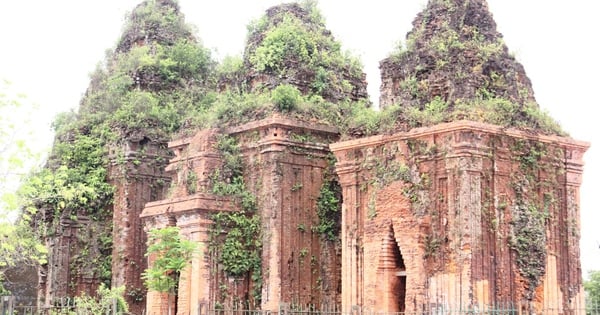



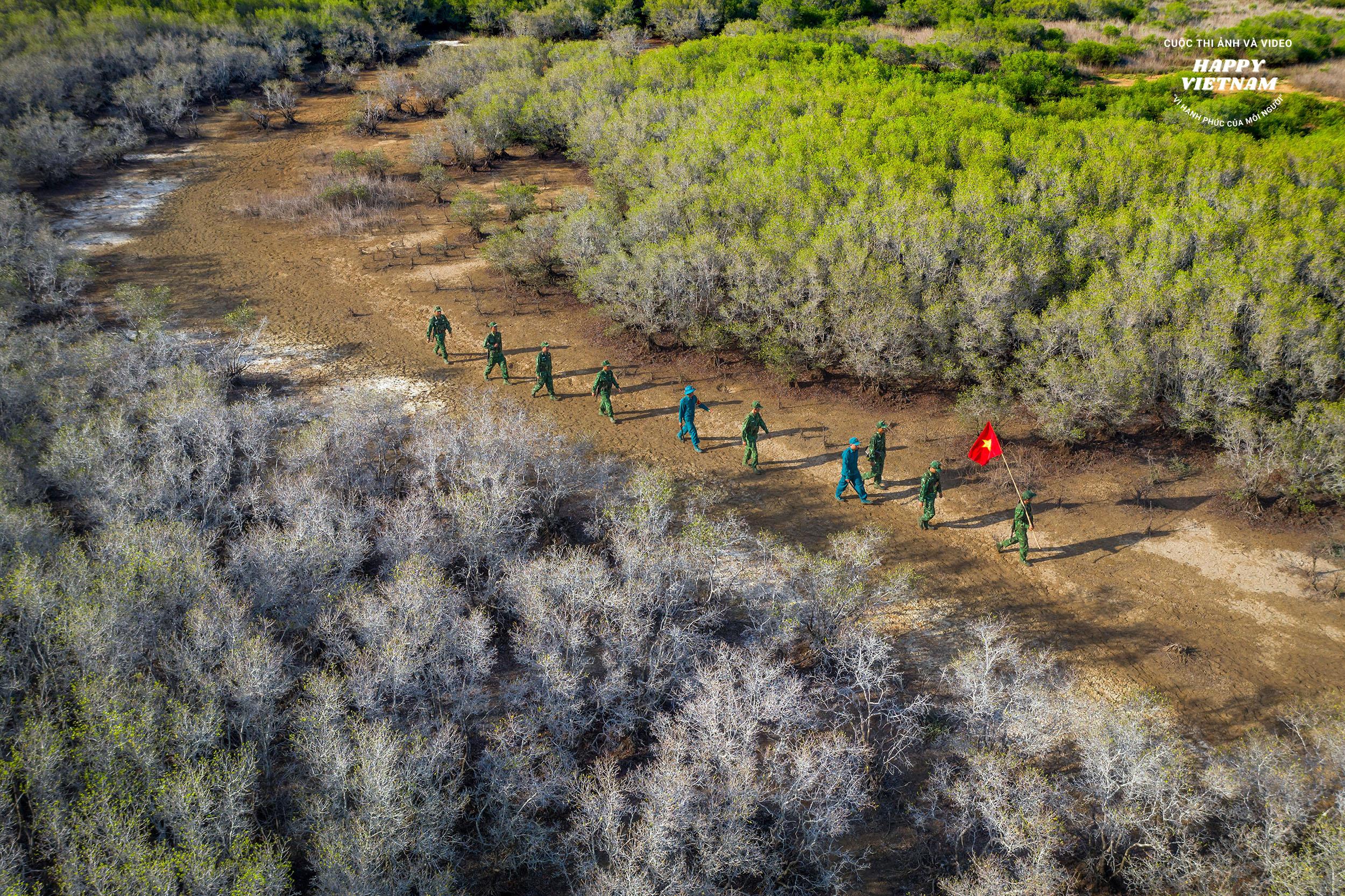









![[Photo] Summary of parade practice in preparation for the April 30th celebration](https://vstatic.vietnam.vn/vietnam/resource/IMAGE/2025/4/11/78cfee0f2cc045b387ff1a4362b5950f)












































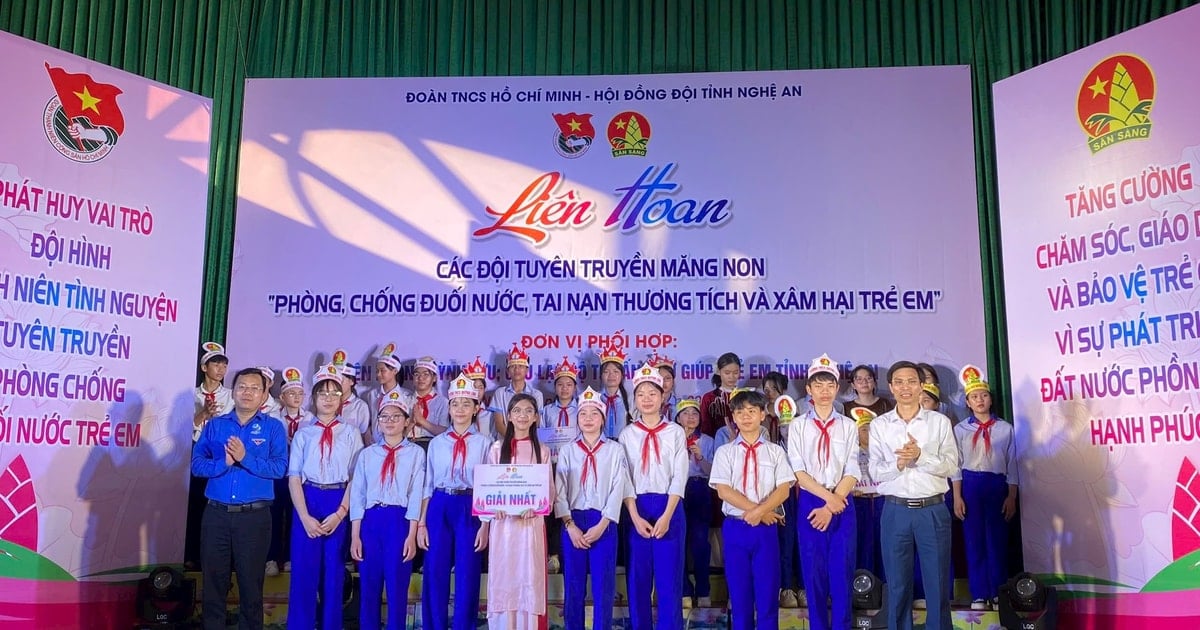

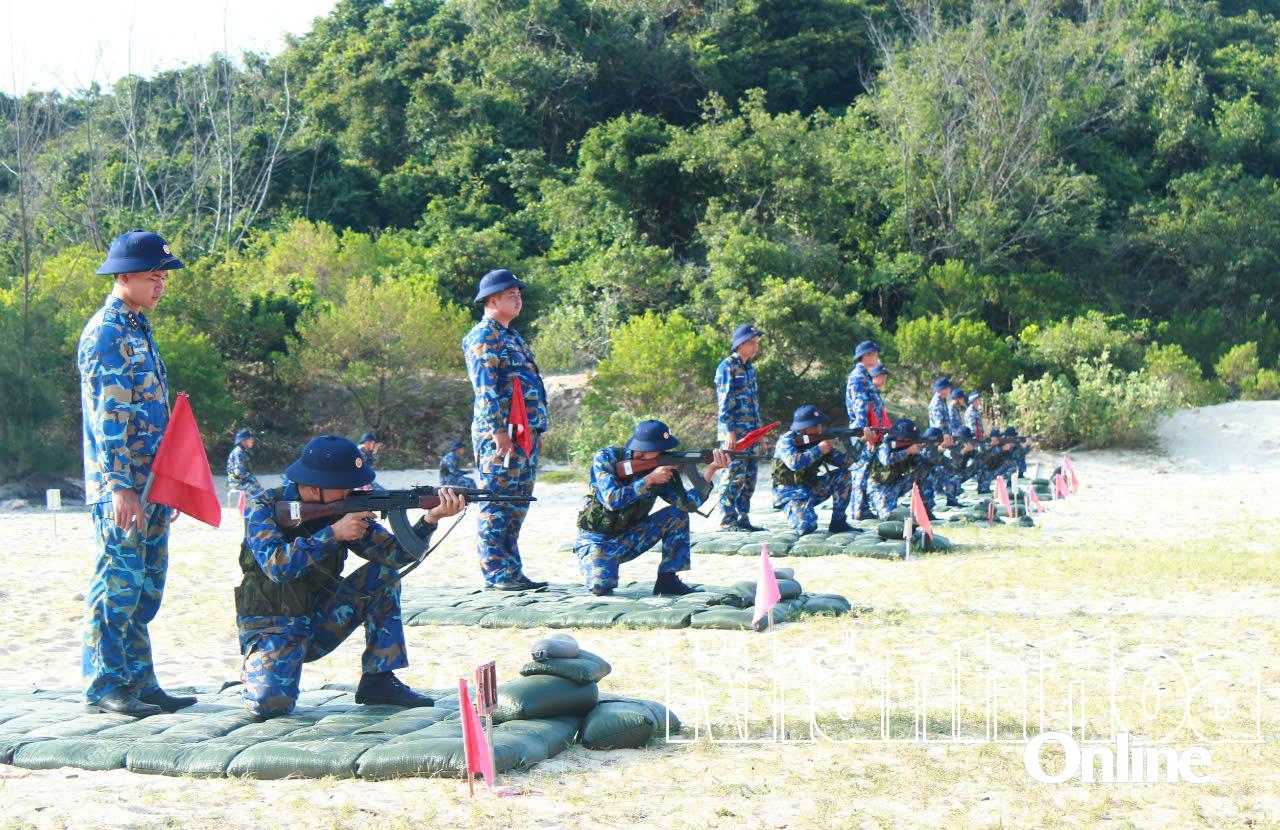














Comment (0)